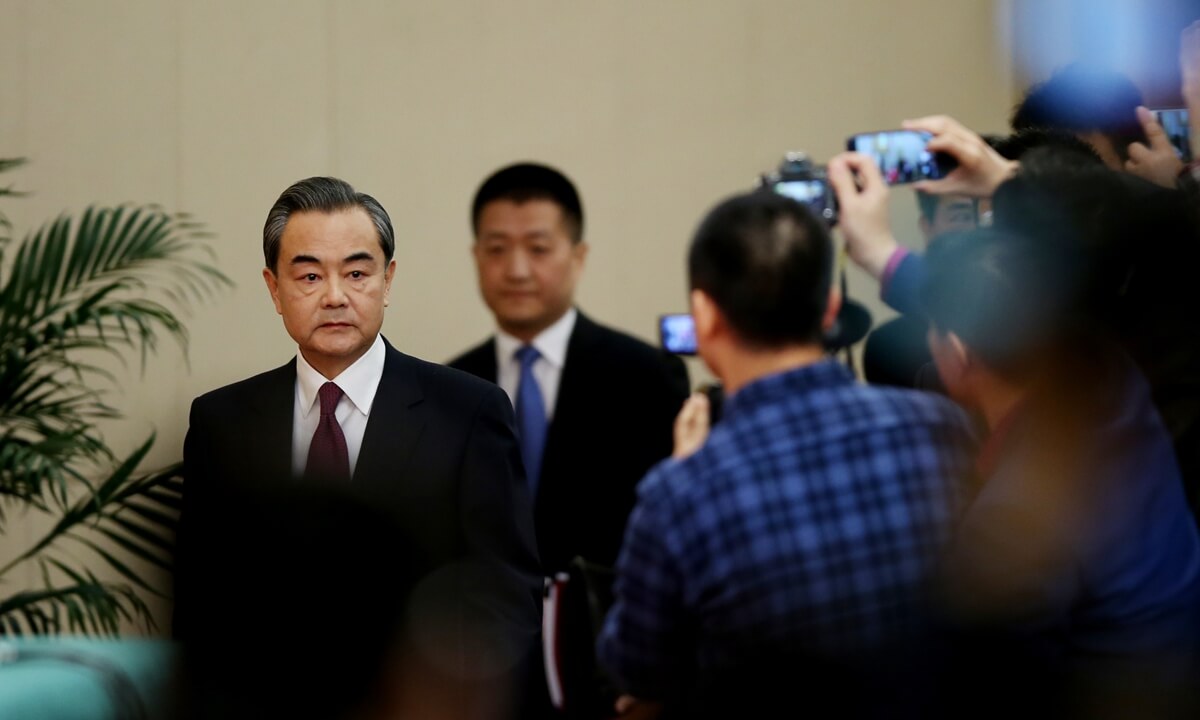Chinese State Councilor Wang Yi said on Tuesday that Asian countries must remain “vigilant” of US actions in the Indo-Pacific, which could lead to geopolitical competition and instability in the broader region.
Speaking at a joint press conference in Kuala Lumpur with his Malaysian counterpart, Foreign Minister Hishammuddin Hussein, Mr. Wang said called for increased cooperation between Beijing and members of the Association for South East Asian Nations (ASEAN) to counter what he called “external disruption” in the South China Sea, stating that China and ASEAN “have full capacity and wisdom, as well as responsibility, to maintain peace and tranquility” in the region.
The Chinese government’s top diplomat’s remarks come just a day after US Deputy Secretary of State Stephen Beigun called on nations wishing to support “a free and open Indo-Pacific” to work with members of the informal grouping known as the “Quad”, which is comprised of the US, India, Australia, and Japan. At an India-US forum in Delhi, Beigen said that the Quad is a partnership “driven by shared interests, not binding obligations, and is not intended to be an exclusive grouping,” adding that “any country that seeks a free and open Indo-Pacific and is willing to take steps to ensure that, should be welcome to work with us.”
The Quad is widely being seen as a regional framework committed to stepping up cooperation to counter Chinese aggression. Apart from its vociferous criticism of Beijing for its mishandling of the coronavirus outbreak and its human rights violations in Xinjiang, the US has also been stern against increasing Chinese belligerence in the South China Sea, against Taiwan, and along its border with India. In recent months, US Secretary of State Mike Pompeo has led the Trump administration’s international campaign to isolate China and its 5G technology as well. China, for its part, has vehemently rejected both the Quad’s “Indo-Pacific strategy” and the US’ criticisms, instead blaming the latter for threatening peace and stability in the broader region.
During his Tuesday remarks, Mr. Wang described Washington’s Indo-Pacific strategy as a security risk for East Asia, saying that the US aims “to trumpet the old-fashioned cold war mentality and start up confrontation among different groups and blocks, and stoke geopolitical competition”. “I believe all parties see this clearly and will stay vigilant against it,” he added.
In other developments, China and India released a joint statement on Tuesday, following the 7th round of Senior Commanders meeting in Chushul the previous day. Both nations had a “sincere, in-depth, and constructive exchange of views” regarding disengagement along the Line of Actual Control (LAC), and agreed to continue to maintain dialogue using military and diplomatic channels, and “jointly safeguard peace and tranquility in border areas.”
China Warns Asian Countries Against US “Disruption” in the South China Sea
Chinese State Councilor Wang Yi described Washington’s Indo-Pacific strategy as a security risk for East Asia.
October 14, 2020

SOURCE: TWITTER (@globaltimesnews)
